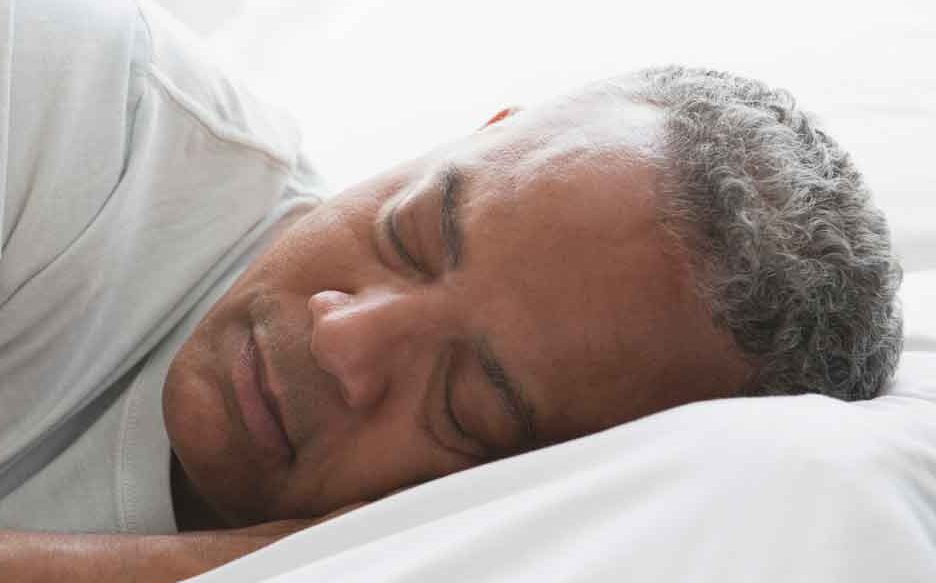How to Sleep Better as You Age

Before sleep problems can turn into a more serious health condition as you age, take these steps to improve the quantity and quality of your slumber.
The often-repeated claim that you need less sleep as you get older is untrue. You still need at least 7 to 9 hours nightly, although you might struggle more to get it. The combined forces of changing sleep patterns, middle-of-the-night bathroom visits, restless legs syndrome can conspire to keep you awake.
Insomnia comes in different forms. You might toss and turn for 30 minutes or more before you can fall asleep, wake up repeatedly during the night, get up too early in the morning, or have a combination of issues.
YOU MIGHT ALSO LIKE: Aerobic Exercises for Seniors
Beyond making you feel drowsy during the day, poor sleep can have real implications to your health.
“On average, a person in his 70s has about one hour less sleep per night than a person in his 20s,” said Clifford B. Saper, MD, PhD, chairman of neurology at Beth Israel Deaconess Medical Center and James Jackson Putnam Professor of Neurology at Harvard Medical School. “Sleep loss and sleep fragmentation is associated with a number of health issues, including cognitive dysfunction, increased blood pressure and vascular disease, and a tendency to develop type 2 diabetes.”
How to sleep better as you age
Before sleep issues can turn into a more serious health condition, take steps to improve the quantity — and quality — of your slumber.
- Keep your bedroom cool, quiet, and dark. Set the thermostat at between 60 and 67 degrees Fahrenheit, the optimal temperature for sleep. Buy room-darkening shades if street lamps or the rising sun wakes you up. If you need to go to the bathroom during the night, use a nightlight rather than turning on a light. Exposure to bright light late in the evening could make it harder for you to fall back asleep.
- Get into a sleep routine. Go to bed at the same time each night and wake up at the same time each morning, even on weekends. Before you go to bed, practice the same calming routine. Read a book, take a bath, meditate, or listen to soft music. If you can’t fall asleep after 20 minutes, get out of bed. Do a quiet activity like knitting or reading until you feel drowsy.
- Turn off your cell phone, e-reader, computer, and television 1 to 2 hours before bedtime. Those devices give off blue light, suppressing melatonin — the hormone that helps regulate your sleep-wake cycles.
- Take an early walk. Walking and other aerobic exercises can improve your sleep quantity and quality, but if you exercise too close to bedtime, you can amp yourself up too much to sleep. Research shows that a morning workout is best for improving sleep.
- Eat light before bed. A heavy meal can make you too full to sleep or cause heartburn. Limit or avoid alcohol with your meal. Though a few glasses of beer or wine might make you feel drowsy, the sleep you get while under the influence is poorer quality.
- Avoid stimulants. Coffee, tea, soda, and chocolate give your nervous system a jolt that makes it harder to fall asleep.
- Limit naps. If you’re very tired during the day, take a nap — but don’t sleep for more than 20 minutes, and do it early in the day. Taking long naps, or napping late in the day, can make it harder for you to fall asleep at night.
If you try these tips and still can’t get a good night’s sleep, see your doctor. You might have a sleep disorder like sleep apnea or restless legs syndrome that’s treatable. It’s also possible that one or more of the medicines you take is keeping you awake.
Sleeping pills can help you get more rest, but they come with many cautions. Sleep aids cause side effects like confusion, memory problems, dizziness, and a hangover-like feeling the next day, which can increase your risk for falls and motor vehicle accidents. Some sleeping pills are also habit-forming. Use such medicines only as a short-term solution, under your doctor’s supervision, to sleep better as you age.
Updated:
August 18, 2023
Reviewed By:
Janet O’Dell, RN